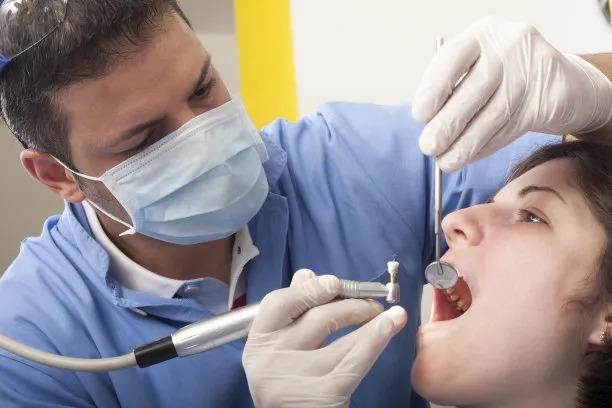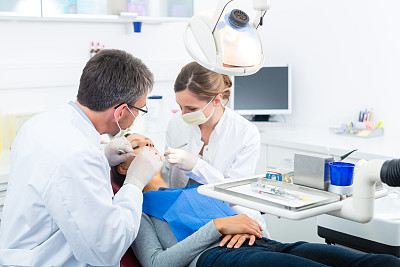Summary: Dental fillings are a common procedure aimed at restoring the functionality and aesthetics of decayed or damaged teeth. However, ensuring a smooth experience before and after the treatment is crucial. This article outlines essential precautions to take prior to your dental filling procedure, including pre-appointment preparations, dietary considerations, and mental readiness. It also discusses post-procedure care, highlighting the importance of avoiding certain foods and maintaining oral hygiene. By being adequately prepared and informed about aftercare, you can promote faster healing and optimal results from your dental fillings. This guide serves as a valuable resource for ensuring a successful experience at your dentist.
1. Pre-Appointment Preparations to Consider

Before heading to your dental appointment for a filling, it鈥檚 important to gather all relevant medical information. Make sure to inform your dentist about any medications you are taking or pre-existing health conditions you may have. This information will assist your dentist in determining the safest anesthetics and materials for your treatment.
Equally important is the scheduling of your appointment. Try to choose a time when you are least likely to be interrupted or stressed. This will help you to be more relaxed, making the experience less daunting. Additionally, consider arranging for someone to accompany you; their support can offer comfort and assistance, particularly if you feel anxious.
Lastly, educate yourself about the filling process. Understanding what to expect can drastically reduce anxiety. Ask your dentist about the types of fillings available and discuss which might be best for your situation. It鈥檚 helpful to know about the materials that will be used and the process involved in placing the filling.
2. Dietary Considerations Before the Procedure
Your dietary choices before the appointment can significantly influence your comfort level during the filling process. Many dentists recommend avoiding food for at least a few hours prior to your appointment, particularly if you will be receiving anesthesia. This reduces the likelihood of nausea should you feel any discomfort during or after the procedure.
Moreover, if your appointment is later in the day, consider having a light meal beforehand. Opt for something soft and non-sticky that is easy to chew. Avoid hard, crunchy, or extremely hot food to prepare your teeth and mouth for a more comfortable visit.
Consider staying hydrated, too! Drinking plenty of water can help keep your mouth moist and comfortable. However, hold off on consuming anything too hot or cold as it may increase sensitivity and cause discomfort during the procedure.
3. Important Aftercare Tips Post-Procedure
After your dental filling, it is crucial to follow aftercare instructions provided by your dentist. One of the primary aftercare steps involves avoiding certain foods for at least 24 hours. Refrain from eating sticky, sugary, or hard foods, as these can stress the new filling and potentially cause it to dislodge.
In addition to cautious eating, be mindful of your oral hygiene routine. Gently brush your teeth around the filled area and avoid flossing near the filling for the first day or two. Use a soft-bristled toothbrush and fluoride toothpaste to promote healing and reduce any potential sensitivity.
Finally, pay attention to any unusual changes such as persistent pain or a sharp sensation in the filled tooth. If you experience any discomfort that doesn鈥檛 subside within a few days, reach out to your dentist for evaluation, as it may indicate that the filling needs adjustment or further attention.
4. Monitoring Recovery After Dental Fillings
Once your filling has been placed, monitoring your recovery is key. Be aware of how your body is responding to the treatment in the days following the procedure. Mild sensitivity can be normal, but keep track of any discomfort that lasts longer than anticipated.
Gradually reintroduce foods as you feel comfortable. Start with soft foods and slowly progress to your regular diet while staying conscious of how your filling feels. If you start to notice that any food is causing discomfort, consider consuming that food more cautiously or avoiding it altogether for a while.
Your dentist may advise follow-up appointments to ensure that the filling is healing properly. It is essential to attend these visits, as your dentist can make adjustments if needed. Positive recovery habits contribute significantly to the durability and functionality of your filling.
Summary:
Understanding and implementing the essential precautions before and after your dental filling procedure can significantly improve your experience. Proper preparation can help reduce anxiety, while effective aftercare plays a crucial role in promoting healing and ensuring the success of the filling.
This article is compiled by Vickong Dental and the content is for reference only
Vickong Dental
Vickong Dental is a large medical group established in Hong Kong in 2008 by professors from well-known medical universities in Guangdong and Hong Kong, as well as medical doctors from key national '985' universities (including Master's supervisors and senior professors). The chain of branches brings together expert dentists with PhDs and Master's degrees from Hong Kong and Mainland China, committed to providing high-quality dental treatment.
"Vickong Dental Practices the University Motto of 'Healing and Serving Society,' with a Stable Operation for Sixteen Years. It Has Been honored with Hong Kong Enterprise Leaders's Choice,' and is a Global Trusted Implant Center for the Nobel Implant System. Recommended by Hong Kong Metro Broadcast and Guangdong Television, it Serves Customers from Over Thirty Countries and Regions, Gaining the Trust and Favor of Citizens from the Guangdong-Hong Kong-Macau Greater Bay Area and Surrounding Cities.

Thousands of customers' unanimous praise
The most recognized and highly recommended dental service by customers in the Guangdong-Hong Kong-Macau Greater Bay Area
We Ensure You Receive Detailed Care and Attention Here
Hong Kong standards, Shenzhen prices, Your Trusted English-speaking dentists

Vickong Dental Medical-Grade Instrument Disinfection Process
Vickong Dental Medical-Grade Instrument Disinfection Process

Vickong Dental Chain: A Warm and Comfortable Environment for Treatment






Appointment Hours

Q&A
Why choose Vickong Dental?
Vickong Dental practices the university motto 「Medicine to Benefit Society」, with each branch bringing together highly qualified dentists with doctoral and master’s degrees from Hong Kong and the Mainland, and has maintained seventeen years of steady operation。Recipient of 「2024 Hong Kong Enterprise Leaders Brand」, 「2025 Hong Kong Enterprise Leaders Brand」, a Nobel Biocare Global Trusted Implant Center, and a brand recommended by Metro Radio Hong Kong and Guangdong TV。
To date, we have served customers from more than thirty countries and regions,earning exceptionally high word-of-mouth recognition and trusted recommendations from residents across the Guangdong-Hong Kong-Macao Greater Bay Area and surrounding cities
We have eight major branches in Zhuhai、Shenzhen,and a consultation and service assurance center in Hong Kong,so you can book a free consultation at any time for any questions,which is very reassuring.
If I do not accept the quotation after the CT scan, will I be charged??
No! As long as the actual treatment has not started, you will not be charged any fees.
Will there be any additional charges during the treatment process?
No, there won’t be any additional charges. Before treatment begins, we will clearly explain the treatment plan and its corresponding fees. Only after the patient agrees and signs the consent form will we proceed with the dental service.
Can I pay in Hong Kong dollars?
Yes. Vickong Dental accepts payment in Hong Kong dollars. The amount will be converted based on the exchange rate of the day, and the applicable rate will be clearly communicated to you in advance.
Can I reschedule my appointment at any time?
Yes. Please contact us via **WeChat** or **WhatsApp** as early as possible, providing your original appointment time and details, along with your preferred new date and time slot for rescheduling.













